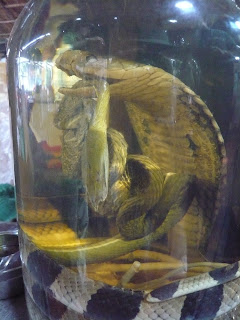No, it's not a typo. In fact, I'm rather pleased with the title of this post, which came to me with the delightful inconsequence that sometimes surprises me. The punning possibilities are wonderfully appropriate too ... look it up yourself (if you need to, erudite reader) and see for yourself. But not, perhaps, before you've read this, my little New Year's ramble through my head ...
Like my friend
Mother Ruth, I've been thinking I ought to get back to blogging more - the thought coinciding this time with the reflective season. As my memories of Christmas tend these days to be trotted out on
Blipfoto, I'm reflecting this new year on what comes with the passing years. Is it honour, love, obedience, troops of friends (there's a theme here) and nothing more? Is it in fact none of these? (obedience? I ask you!) Is it something more ... inward?
Well, yes, actually. Inward, with outward manifestations. And it's to do with confidence. Not, I hasten to add, the confidence that had the 10 year old me scooshing along a slide in the ice, sure of my balance and the supple joints that kept me upright; not the confidence that takes you down a rocky path even faster than you clambered up it. No. There are endless nibblings that erode physical confidence by the time you get into that seventh decade. But I've recently realised that I no longer fear being somehow "found out", and that's a big compensation.
So what kind of fraudery was I scared of being discovered in? Perhaps the easiest to pin down was one I've mentioned before. When I moved to Dunoon with my five-week old baby I discovered that everyone I met regarded me as a fully-fledged, adult mother who also happened to be a fully-fledged member of the Scottish Episcopal Church. In fact, my membership of that body was almost as young as my son, and I no more felt like an adult that I did a Klingon. (Why did that comparison slide in there?) I was playing a part, and surely it was only a matter of time before I was found out.
Five years later I became a member of the General Synod of this church I had only recently joined. I was the youngest lay member, for sure, and may even have been younger than the most juvenile clergyman present (remember - they were all men, in these far-off days. There were only 13 women on the whole body in this, its final manifestation; we had voted ourselves into extinction by the time my stint was over). I looked in awe at practically everyone present, and was sure they thought me a child. The only person who seemed on the same planet as me was Richard Holloway; one day, at lunch, he offered me "some barbecued peas" and we laughed. Did he realise how I felt?
But to the present. The joy of being the age I am now is that I know who I am, what I can do. I am less likely to take on something that I don't feel comfortable doing, so the things I do undertake I undertake confidently. I care less, much less, what people think of me - whether it's the colour of my hair (currently a sort of Pentecostal red) or my political opinions. The people I love may disagree with me about issues large or small, but it won't stop me loving them. I have fewer bosom buddies than in my teens, but have learned the importance of knowing who can be relied on in a corner.
I could, I realise, go on and on ... Bishops are all younger than me; clergy have to earn my respect like anyone else; I don't worry about fashion (did I ever, much?); I don't mind people knowing I watch East Enders (hasn't it been black over Christmas?); I no longer read books because I should. I find myself able to speak to all sorts of people on all sorts of topics, from bereavement to equal marriage, and find them listening as if I actually have something to say. I will no longer be patronised.
Perhaps all this is what lies behind the wearing of purple, the living in a van, being Lady Violet Crawley ... all these impossible old women of popular culture. Purple doesn't go with the hair right now, and I'd find a van chilly, but I can see a future here ...












